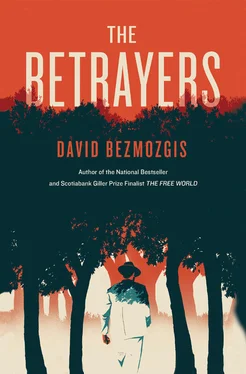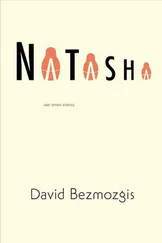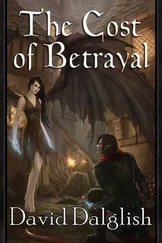— You worked for them from 1964? How many others did you denounce? Kotler asked, and for the first time he felt a flash of the anger he had known in those years.
— Nobody else.
— All those years for me alone?
— That’s all they ever asked of me.
— Did you know from the beginning that you would be required to denounce Jews?
— I didn’t know anything. The colonel said I would have a chance to restore my family’s honor by protecting the motherland from spies and saboteurs. I thought he had in mind catching others who were doing what my brother had done. Those who were doing it on a larger scale. But I heard almost nothing from them for several years. I guess they had no shortage of informants. They didn’t contact me until 1972, when they made plans to move me to Moscow. Only then did they explain what they wanted from me.
— So you never applied to go to Israel.
— How could I? They had me by the neck.
— Well, you certainly played the Zionist.
— Before 1972, I knew as much about Israel as you did. I followed the Six-Day War. I watched the Munich Olympics. I never denied who I was. But what kind of Zionist could I have been in Alma-Ata before 1972? What did we have in Kazakhstan? I learned about Israel and Judaism along with you, in Moscow.
— As a KGB spy.
— It so happened I discovered Zionism through the KGB. But the things I learned, the people I met — those were the best days of my life. You say I pretended to care about Israel, but I cared as much as anyone else. I too dreamed of living there even though I knew that for me it was a futile dream.
— So if you were such a sympathizer, why did you continue to collaborate?
— In ’72, they still held my brother. And after they released him, they threatened to take my father. He suffered from heart problems. I told them to arrest me instead, but they refused. They said if I stopped cooperating they would put my father under a rock and me right beside him. Even after your trial I tried to recant, but they wouldn’t let me. I offered to go to prison, but they wouldn’t allow it since it would compromise the result of your trial. I was the primary witness and so I couldn’t be a criminal.
— We all had families, Kotler countered. We were all prey to the same intimidation. And we all had to make the same calculations. Everyone understood what it meant to shelter one’s brother at the expense of someone else’s. None of us had that right. You say you believed that they wouldn’t shoot me, but how could you know? What if they had shot me? Or what if some accident had befallen me in jail that cost me my life or left me a cripple? Or even if none of this happened, what led you to think that I could be shorn of thirteen years of my life? That I should be separated from my wife? That my parents should not live to see me liberated? That they should have to meet death without their son at their side? There is no compensation for such losses. Not in this life. And no explanation but weakness. Which I can excuse. But not self-deception.
Kotler knew he was allowing himself to become overly emotional. It hadn’t been his intent, but the mention of his father’s death had loosed the stream of memories. Where had Tankilevich been when Kotler received the letter informing him of his father’s death? What affront was he decrying while Kotler was at the Perm camp sewing hundreds of flour sacks? The letter arrived in February, four months after his mother had sent it. My dearest son, How it pains me to give you this sad news. The camp authorities would not explain why it had been so cruelly and illegally withheld. From there the conflict escalated so much that he himself came close to meeting his end. He announced a work strike. He would not sew the flour sacks. He wrote a protest to the post office, to the procurator’s office, and to the Interior Ministry. Even though he was four months late, he decided to sit shivah. He stayed in the barracks and recited what mismatched scraps of Hebrew liturgy he could remember in the absence of a prayer book. Hear, O Israel, the Lord is God, the Lord is One. Holy, holy, holy. He Who makes peace in the heights, may He make peace upon us, and upon all Israel, amen. He wore the single phylactery upon his head like a horn, its companion missing, the subject of a previous battle. When he ignored the commands of the guards, the warden came to reason with him. He ignored him too. He was not deceived. After all, who had withheld his letter? Out of respect for his father, he declared that he would sit the full seven days and observe all the customs, neither working nor shaving. Then the battle started in earnest. They cut his food ration in half. But his bunkmates — a Crimean Tatar, a Jehovah’s Witness, an Estonian nationalist — gave him from theirs. Before the week of mourning was up, the guards threw him into a punishment cell. When he still refused to concede, they confiscated his phylactery. Two guards pinned him to the stone floor while a third tore it from his head. He then had no choice but to declare a hunger strike until his property was restored to him. Ninety-eight days later, when his heart was no longer beating properly, the warden put the velvet pouch with the phylactery on the metal table beside his cot. For those three months, they had fed him with a tube down his throat.
But this was in the past and he had put it to rest. It didn’t pay to dredge it up. Kotler looked at Tankilevich standing rigid before him.
— Never mind, Kotler said. It’s all gone and done with.
— For who? Tankilevich asked.
— For everyone.
— Easy for you to say. You’re a big personage. You have yourself a young mistress.
— You’re right, I have a mistress. She’s a remarkable young woman. Attractive, passionate, intelligent. Everything a man could want. But it’s not a thing to gloat about. On the one hand, I am very happy with her; on the other, I regret the whole mess. I have hurt and embarrassed my children and my wife. I have damaged my reputation, but Shakespeare had a good line about that. Still, if you wish to insist on the past, then you can take credit for my mistress. If I hadn’t been separated from my wife for thirteen years, it would never have happened. I would have gone to Israel shortly after Miriam. Maybe a year or two, but not thirteen. When we reunited, my Miriam would have been much as I remembered her. She would not have gravitated toward religion or the settlers. Neither of us was much inclined that way. We would have had a normal life. Instead, we had thirteen years of separation and thirteen years of struggle. She was alone fighting this battle. The state of Israel rebuffed her. Because I’d involved myself in the larger human rights movement, I wasn’t Zionist enough for them. My case trailed unwanted complexities. So who embraced her and who helped her? The religious. The settlers. And naturally she was drawn into their midst. Because of their help, she had the strength to fight. For that I’m grateful. But the woman I found wasn’t quite the woman I’d married. And as for Leora, my mistress, what reason would a girl like her have to be interested in a round little man like me? Only because I was dropped down the coal chute of the Gulag and came out the other end.
— There. That’s it. Say what you will, but you benefited from this Gulag. You had thirteen dark years followed by how many bright ones? Without those thirteen years, where would you be? You say living a normal life. Am I living a normal life? Very well, in Israel a normal life doesn’t look like this, but people still struggle. Maybe you would have had forty years like that? In stead you had money and position. Those thirteen years were your lottery ticket.
— I see. And you gave me this ticket.
Читать дальше












